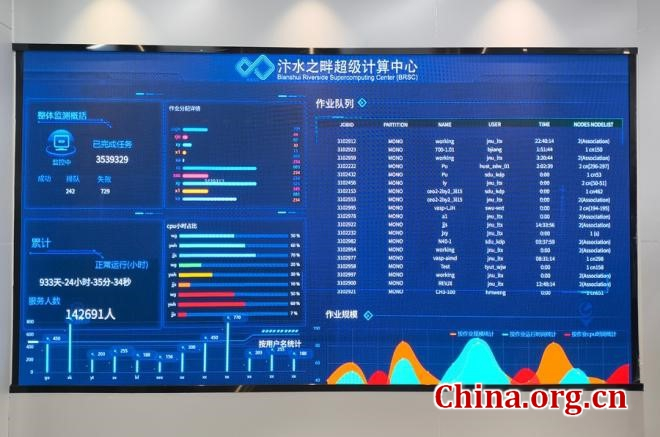Anhui's Suzhou intensifies efforts to build computing power hub

Suzhou, a city in eastern China's Anhui province, is ramping up efforts to grow its computing power industry, with plans to build an industrial cluster expected to be worth 100 billion yuan ($13.8 billion).
Not to be confused with Suzhou in neighboring Jiangsu province, Suzhou in Anhui is seeking to become a regional center for advanced computing and data services.
At the center of this push is the Suzhou Computing Power Industrial Park, which opened in 2012 and spans about 15 hectares. The park is currently being expanded to include 100,000 square meters of data center facilities.
Equipped with extensive network infrastructure, the site serves major clients such as Huawei, QuantumCTek and Inspur, along with academic institutions including Tsinghua University, Peking University and the Beijing Institute of Technology. It also provides resources to research organizations specializing in atmospheric physics and automation.
The park supports sectors including big data, software development, mobile gaming, animation rendering and e-commerce livestreaming, according to Liang Xixi, a staff member at Suzhou Huarui Network Information Service, which helped develop the project.
Liang told China.org.cn that the park offers both supercomputing and intelligent computing services, which are used for distinct purposes.
"Supercomputing is used for high-precision tasks, such as tracking typhoon paths or analyzing protein structures, mostly serving research institutions," Liang said. "Intelligent computing, by contrast, is used in everyday applications. For example, animation rendering for games like 'Black Myth: Wukong' and films such as 'Ne Zha 2' relied on intelligent computing."
Key projects at the park include the Huaihai Intelligent Computing Center and the Bianshui Riverside Supercomputing Center. Plans are underway for additional facilities, including a China Mobile computing power center and a Baidu intelligent cloud computing center.
Suzhou currently hosts 465 enterprises related to the computing power sector, generating nearly 7.5 billion yuan in annual revenue. The city plans to increase its computing power capacity to 6,000 petaflops this year and aims to ultimately reach 8,000 petaflops.
Officials are also cooperating with partners across the Yangtze River Delta to establish an integrated computing power network that can meet rising regional demand.
The city will continue supporting integrated industrial development, according to the Suzhou City Development and Reform Commission. Priorities include a regional low-altitude intelligent computing center to improve flight route optimization and safety, as well as a data service platform for smart connected vehicles and tests of vehicle-to-road collaboration technology.